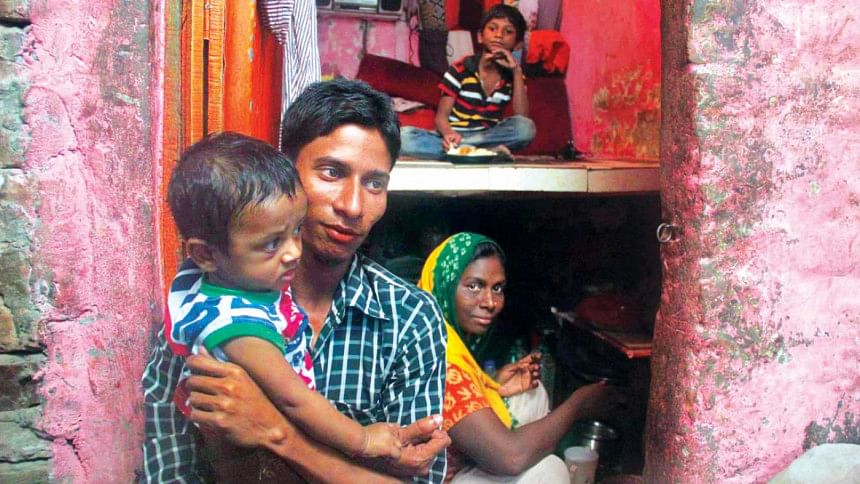EIGHT BY EIGHT

8ft by 8ft- the size of an average bathroom in most of our homes—that is how much space each family living inside the Geneva Camps (Bihari Camps) all over the country is allotted. Whatever the size of the family may be, that is where they must eat, cook, sleep, and exist. "We are used to the cramped space," says 22-year-old Asmaa Akhter, who has grown up in the Market Camp in Mohammadpur. "It does get difficult when we have people visiting and some of us have to sleep under the bed" she says. "I stay in one room with my parents, and my two brothers, sister-in-law and their child stay in another." Her home has enough space for one bed, a clay stove and a refrigerator.
Aside from the severe problems they face due to the scarcity of water and sanitation, these refugees have to tackle a hoard of other issues on a daily basis. "There is a sense of community and support inside the camp if you are ever in need of it, but because we live in squalor and poverty people here do not often get along," Aasma tells us. "There is also the issue of sexual harassment which is prevalent here. We all have to bathe in one communal area, there is no privacy for women, most of the toilets don't even have doors, so naturally it creates an environment where women feel vulnerable and are targeted," she says. "I bring water into our room and shower here to get some privacy, despite the inconvenience." Another major problem in the camp is theft. "We usually leave our doors open for light and ventilation as we have no windows," says Asmaa but if we happen to leave anything of value around, it is bound to get stolen."
During the summer months, the camp has no electricity for at least eight to nine hours a day. However, monsoon is the most difficult season in this area as the alleyways get flooded with drain water, ankle (sometimes knee) deep, filled with garbage and faeces. "It is unbearable to walk around in it," says Asmaa, "The smell is so putrid you can hardly breathe. The toilets get so dirty sometimes, we have to close our eyes to use them," she adds.
To save money on stove oil, many of these camp dwellers do not boil their drinking water, leading to an outbreak of diseases. "Most of us cannot afford the medical bills so we only see the doctors who know our situation and do not charge us a fee," says Asmaa. "It was difficult for us to open bank accounts because we could not produce a bill of any sort. I had to ask a family member who lives outside the camp for their bill to show the bank," she relates, "We need to do the same in school applications, job applications you name it- if they see a Bihari Camp address, most places will not give us a chance.
While Aasma's family has managed to save enough to build four brick walls around their previously tin-walled room, many families cannot afford to do even that. Their homes have flimsy walls with roofs that leak whenever it rains.
"I would like to leave the camp someday," says Asmaa, "I'm sure most of us would. I feel like I do not belong here. We dream of better life outside. We dream of independence."

 For all latest news, follow The Daily Star's Google News channel.
For all latest news, follow The Daily Star's Google News channel. 



Comments